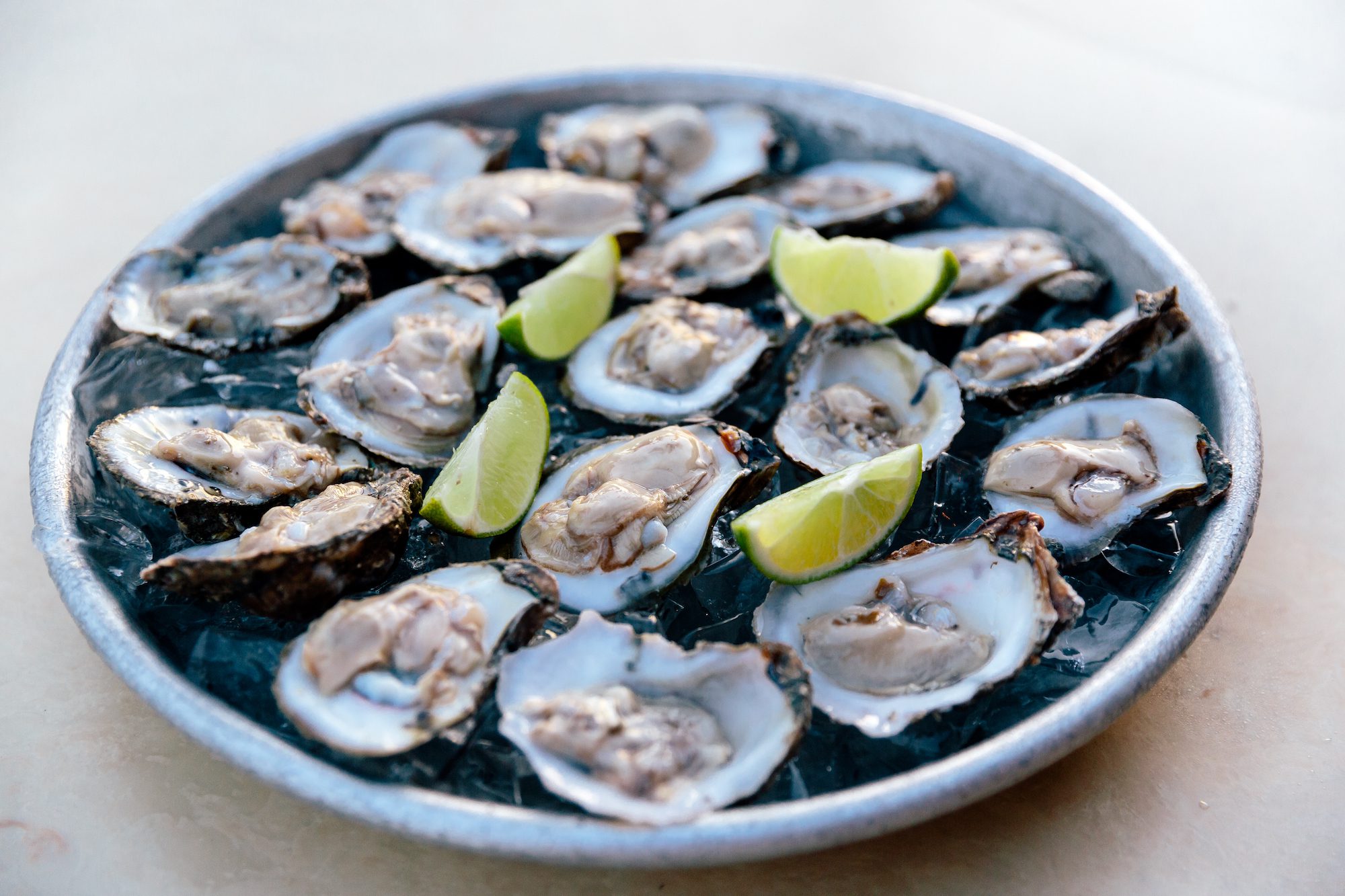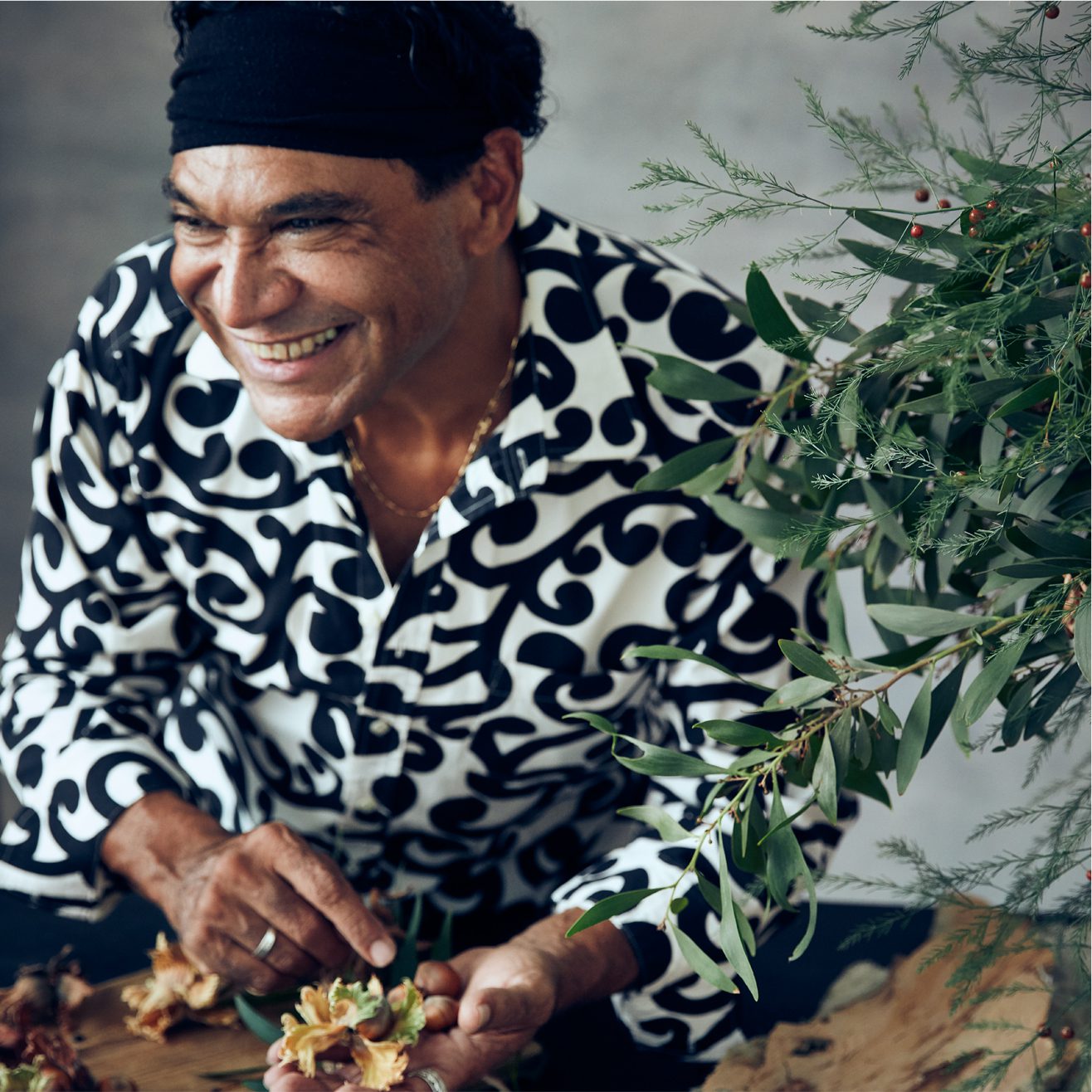Mark Olive, also known as the ‘Black Olive’, is an iconic ambassador for Indigenous food. With over 25 years of experience, Mark, a Bundjalung man, has made his impact in the Australian and international chef scene.
Specialising in aligning the flavours of olive oil and olive infusions, he creates world-renowned recipes that pay homage to the cultural and soulful culinary techniques of First Nations people, like the perfect olive oil-based oyster recipe here that is sure to become a firm summer entertaining favourite. Mark is an advocate of olive oil-based cooking due to both its health properties and to the sustainability of this remarkable oil.
Healthy and sustainable
No Mediterranean diet is complete without olive oil. Rich in antioxidants and monounsaturated fat, it helps protect the body from a range of health conditions and diseases. Compared with other cooking oils, it is also the most sustainable crop, as olive trees have the ability to act as a carbon sink and are highly efficient in the use of water, tolerating drought and low-water conditions.
While olive oil is a pantry staple all year round, it can really shine during summer drizzled over salads, as a dipping oil for crusty breads, as a finishing oil for vegetables and pastas, and for sautéing the seafood.
As well as its health benefits and delicious flavour, another bonus of olive oil is its high smoking point, making it perfect for deep, shallow and stir frying. And of course no baked good is complete without this multi-purpose staple, whether it’s keeping your baked potatoes crisp, or your cakes and muffins moist. Olive oil’s natural aromas enhance any food it is paired with.
Virgin olive oils are the oils obtained from the fruit of the olive tree (Olea europaea L.) solely by mechanical or other physical means under (particularly thermal) conditions, that do not lead to alterations in the oil, and which have not undergone any treatment other than washing, decantation, centrifugation and filtration.
Which oil?
Olive oil and extra virgin olive oil are both made from olives, but the method of extracting the oil is different. Extra virgin olive oils have undergone the least processing but to extract the oil without heat or chemicals is time consuming. Virgin olive oils are rich in antioxidants and phenolic compounds with high biological value.
The best quality of these oils are the extra virgin oils – their delicious taste makes them perfect for uncooked dishes like dips and dressings. Olive oil is a blend of refined olive oil and virgin olive oils fit for consumption as they are. Olive oils are also perfect for cooking, baking, sautéeing and deep frying.
To learn more, visit internationaloliveoil.org/olive-world/olive-oil

Oysters with Extra Virgin Olive Oil Sauce
Serves 4
Ingredients
24 Oysters
125ml white wine vinegar
1 tsp ground lemon myrtle
Pinch of saltbush
1 dstsp (dessert spoon) of honey
3 dstsp wasabi paste
30ml soy sauce
Spritz of lime juice
50ml lemon aspen syrup
50ml Extra Virgin Olive Oil
Pinch of pink lake salt
Method
Shuck the fresh oysters. Clean, and set aside.
In a bowl, place the vinegar, ground lemon myrtle and saltbush. Add honey and whisk until dissolved. Whisk through the wasabi, soy sauce, lime and lemon aspen syrup. Blitz through the olive oil.
Chill and spoon over the fresh oysters, adding a pinch of salt.

MiNDFOOD Promotion







